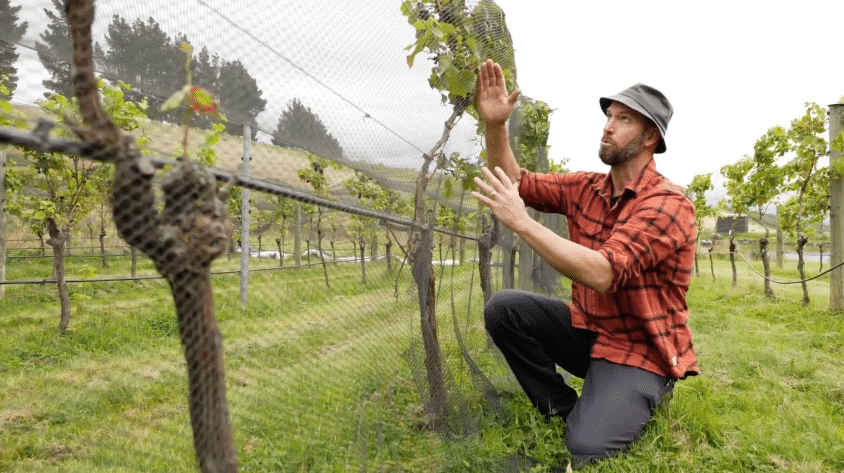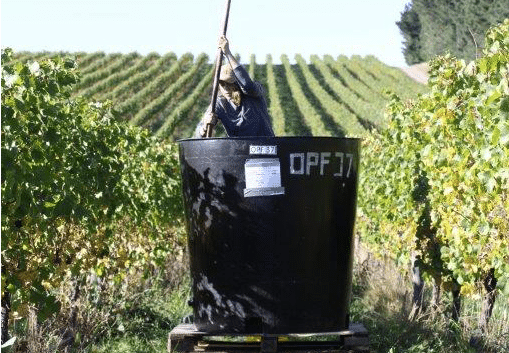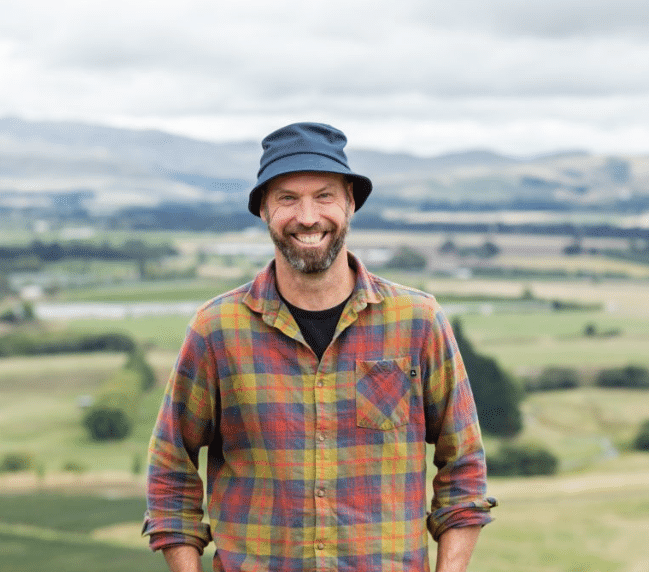The Regenerative Viticulture Foundation Q&A with Nick Gill of Greystone
To learn more about The Regenerative Viticulture Foundation click here.
What does ‘regenerative viticulture’ mean to you?
For me it’s about moving along the continuum a little more at every opportunity. How can we be a little less reliant on cultivation, how can we drop out a spray, how can we maintain soil cover more effectively, how can we get more diversity into the vineyard, how can we incorporate more animals or different animals into the vineyard for longer.
What was your ‘Aha!’ moment for regen?
Starting to get a grip on the carbon cycle and realising the more we can allow the plants to grow and accumulate carbon and secrete it into the soil, the less carbon there will be in the atmosphere AND the soil will have better water holding capacity, more available nutrients for plant growth, higher density food, more intense tasting wines etc.

What’s the most important change you’ve introduced or that’s made the biggest difference?
We’re organic so cultivation is still necessary sometimes for weed control or seedling establishment but every time we cultivate we carefully consider why, how and when we are doing it and what the end game is.
Which creature are you most pleased to have encouraged to your land?
Actually the humble sheep! We have 1.5 ha of vineyard now with a high cordon at 1.6 m so we can graze a flock of sheep in it at any time of year so they take care of all the mid row sward mowing, water shoot removal and vine strip weed passes. We can put them into that block with no fear of them reaching or damaging important shoots or fruit and this alone has reduced our tractor passes in that block by approx. 50%. I would love to have the native Weka back in the vineyard. It is a flightless endemic NZ bird of the Rail family and really good at pest control – a work in progress!Multi species of dung beetles.
Who do you turn to when you need support?
First port of call is my wife Angela! We’ve grown any number of crops together and three children who for the most part have worked out well! Then I have a network of good friends for moral and mental support and a wider network of Regenerative Farmers in the Quorum Sense network who are always full of encouragement, enthusiasm and ideas. I find talking to people outside of the industry to be super useful.
Is there a regen practice that turned out to be super easy and cheap to implement?
In NZ Vineyards I think a start is looking at sward management and sheep. Many vineyards here already use sheep in the vineyard during winter but are you doing it well and could you perhaps introduce the sheep earlier and take them out later? We find sheep don’t tend to bother bursting buds if there is plenty of feed. But be mindful of your best practice grazing from a Regen point of view – aim to eat half, leave the remainder to rest then come back to it. Don’t eat it “down to the boards” as they say here unless you have a particular outcome in mind like disrupting the current status quo to get a new crop established.
What’s your top regen tip?
Avoid paralysis by analysis, work out the one thing you can do this week that moves you a little closer to where you would ultimately like to be and get it done. The positive vibes you get from that will provide impetus for the next step and so on. Don’t aim for perfection, focus on moving forwards – small steps still count and they all add up.
What would you tell a younger version of yourself, just setting out growing grapes?
Is a monoculture natural and long lived or is it manmade and fragile? What can you do to bring some diversity into this vineyard?
What would an idealised version of a ‘perfect’ regen vineyard feel like?
Depending on the scale it could be high trellis or it could be vines grown up a suitable tree species at wide spacings, high vigour rootstocks, sub surface irrigation, sheep and or geese available for grazing, some slope to assist with frost and water management, fertile topsoil over clay limestone subsoil, and a space for vineyard fermenters where we can ferment the handpicked grapes in the vineyard!

Is there a piece of technology that has made a real difference?
A spade😊 Should be carried at all times.
Are you currently experimenting with any field trials?
Yes we have the 1.5 ha block of Highwire trellis which is showing a lot of promise in terms of integrating sheep into the vineyard at any time of year bringing diversity and nutrient cycling, reducing tractor passes and diesel consumption and growing delicious, vibrant, bright, balanced wines.
How do you control weeds?
Really depends on the block – with big 30 year old vines on own roots they hardly get any weed control apart from the sheep during winter – those vines are running the vinestrip, not the weeds. In other blocks we use all sorts of gear from undervine mowers to the Braun and Clemens brand knives, discs etc.
How do you control fungal diseases?
Lots of sunlight and regular certified organic sprays. Powdery is our biggest issue so mostly sulfur and some Bot sprays using BT. Leaf removal is important in our climate.
What have you done to slow down and store water on your land?
Our vineyards have a significant area on sloping faces so reducing cultivation in both the mid row and vine row has been critical for this. Otherwise all the soil would be at the bottom of the hill. When we moved from conventional to organic we pretty much sold the herbicide unit, replaced it with an undervine cultivator and carried on. We quickly found out we needed to change this approach as the steep blocks quickly started showing signs of water erosion and all the attendant problems that accompany that.
What do you listen to while you’re working?
I listen to music. I can’t focus on a podcast when I’m working so it’s lots of tunes – anything from Kiwi drum and bass to House or Electronic depends how I’m feeling.
If you had a superpower what would it be?
I’d use it to make more cooperation and less conflict in the world. We have enough of everything to make this work.
To read the entire article on RVF’s website click here.
